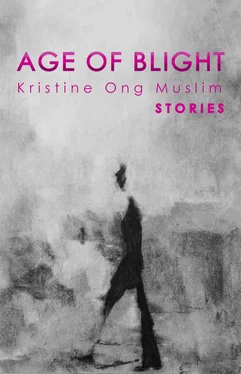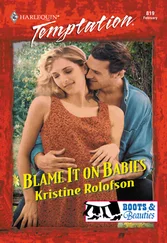What was surprising was how ferociously the elders had argued. Some of them were in favor of the Builders staying in our village to do what they came here to do. Maybe, the elders thought it was all up to them to decide whether or not to welcome the outsiders. Or maybe, it was the desire to still have some control that led them to discuss things as though they still had a choice. I did not think we could make the Builders leave even if we wanted to. If it came to that, the Builders had ways and possessed things they could use to defend themselves if we tried to forcibly drive them away
So, the Builders ended up staying. Most of the terms were fair and were made transparent to us. What remained unspoken that night was the fact that we just could not make them leave, diplomatically or otherwise.

The next day, one of the Builders had an accident while climbing the hand-and-foot trail on the rockface. The belay mechanism failed, and there was nothing else to break her fall.
The Builders took a day off after the tragedy. I spied on them, pretended to look at their blueprints and what they called tomographic readings, pretended to understand their need for taking measurements and recording data. What I was really curious about was how they grieved. I had been taught to believe that one could only truly grasp what binds a group of people by observing how they mourned their dead. And the Builders — oh, they were beautiful in their desolation in this alien territory, in their shared grief.
I noticed one man crying silently outside the air-conditioned tent where the Builders housed their electronic equipment. I was told he was the dead woman’s brother, and he worked as the group’s computer technician.
In retrospect, I realize how arousing pity can be wielded as a weapon. But at the time, observing the dead woman’s brother agonizing over his profound sense of loss made me want to help the Builders in their mission. I remember snapshots of world history while I was schooled by outsiders many years ago. I remember how the swarthy Catherine de’ Medici, even through the atrocities that followed her reign, charmed her people because they somehow felt sorry for her. They imagined their Queen looking into that hole on the floor to the bedchamber her husband shared with Diane de Poitiers. They imagined their Queen in her desperation when she resorted to drinking copious amounts of mule’s urine because she thought it would help her conceive an heir to the throne. Yes, the ability to incite pity could be compelling in so many ways.

On the third day, the Builders resumed their work. And when they did, the Doctor generously explained to us, with me doing all the translating, the spectacular location of our village. He had slides projected on the wall of the darkened tent. He described, one by one, what they knew of my people, why they came here, and how their research here could simultaneously change paleontology and anthropology. Some of the elders were impressed. Some were scared and intimidated. Only two of them protested violently, lashing out and whisking aside what looked to be telecommunications equipment.
Tiago, one of the elders who adamantly refused to give the Builders access to his home, looked at me and said in our language, Flesh is dry. Flesh is parched. Flesh is forever flawed and unwilling to hide telltale marks of abuse. Join me. There is only so much that we can carry. These Builders don’t belong here. The boils will appear behind their necks. The boils will grow right under their skin. Their descendants will carry the mark …
It was the Curse of Ridika, god of pestilence. My people knew what it could do when recited in full by an enraged elder. To prevent him from finishing, one of the elders approached him from the back and tackled him to the ground. It took the whole night for the rest of the elders to calm Tiago down.
Three days later, two children had succumbed to the sickness exuded by the Builders. They just did not wake up. There were small boils along the length of their arms. There was also the telltale odor of putrescence on the young bodies that had only died a few hours before. My people and I washed and wrapped the bodies of our dead children, prayed, and carried them to be buried beyond the valley. The rough beasts of summer looked on as we buried our dead.
It was only the beginning. Around sixteen more of my people fell ill and died. Tiago was the first of the dissenting elders to die. Only the ones who had nothing against the Builders were immune to the sickness. We survived. We assimilated.
It did not take long for us to cease looking disheveled, to look buffed and polished and well-mannered. Slowly, my people learned the language of the outsiders. Next would come learning their arts, their sciences, their ways of looking at the world. When we met each others’ eyes, we no longer considered it an act of aggression. And when the Builders walked ahead of us, we no longer considered it to be belittling.

Time passed, and the valley was now a bustling metropolis. An atrium enclosed by a glass dome filtering UV rays served as the Builders’ command center. I worked with them now, on their payroll, as a sort of emissary, a token intermediary. I was well compensated for performing easy tasks.
At the entrance to the Builders’ command center was a translation of the first of our nine sacred stones. The Builders must have found it quite important to commemorate what was written on the first sacred stone, the one that chronicled our beginnings. Now written in the language of the Builders, the story of my people was etched in a large metal plate. It said,
Do you see now what has become of us? When you first found us, we were swarthy and inelegantly intact — our horns and hides bristling in place, our hooves not yet scored and bloodied by a hundred different splinters, our quiet manifold darkness tucked away from sight. That was before an iron-laden rock roughly a mile in diameter decimated the area of the tropical forest we called home .
The blast razed the trees, turned them into supplicants that brooded as they circled the periphery of the crash site, now a dumb and faceless crater lake cupping algae-ridden water. What once were trees became stunted wooden figures bending toward the direction of the crater, as if they ended up worshipping whatever it was that had killed most of them. And if you look at the not-quite-trees closely enough, you might notice how they twitch and flinch and rustle their phantom branches bearing phantom leaves — all these subtle motions taking place even in the absence of wind .
Some of us died. The ones that survived were those that could mimic what passed for dead. The ones that flourished were those that resembled the rough beasts of summer — the restless and the languorous, the reckless and the selfish, those with tough hides allowing for elevated thresholds of pain. They entered the cities and mingled with the two-legged ones, the ones that learned long ago to stop walking on all fours, to covet ever so strongly what others have, to always take more than what was needed .
The remaining elders were made comfortable, of course. The Builders made sure of that while they razed the valley and relentlessly carved the first layer of an open-pit mine at the edge of what was once the forest sheltering the rough beasts of summer. With butlers, chefs, and health-care professionals at their beck and call, the elders were each provided with well-furnished, temperature-regulated quarters in the residential skyrise. They occupied the ones on the west side, the ones sporting the widest balconies and walls laden with a dizzying ladder array of hydroponics-grown vegetables — an addition I suggested because I knew it would please my people.
Читать дальше













